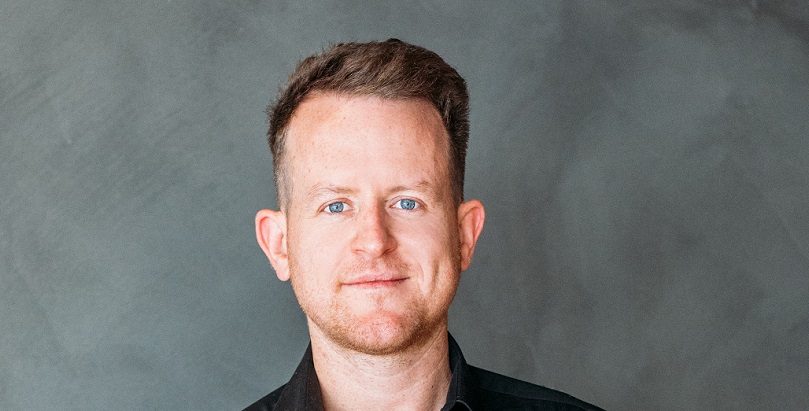New York-based VC firm K50 Ventures has been building a community in Africa for more than a decade, even before it had a fund, with community leaders in Nigeria, Kenya, South Africa, and Ghana.
K50 Ventures describes itself as a first-check investor for mission-driven founders “building a better future for the 99 per cent”. It invests up to US$2 million in pre-seed and seed stage companies that have a focus on improving access, affordability, and wellbeing across health, finance, and work.
Ryan Bloomer is the firm’s founder and managing director, an experienced entrepreneur who previously founded two companies. He told Disrupt Africa K50 had the aim to invest globally from the very beginning.
“We have always been focused on companies that touch the middle class consumer and SMB which naturally drew us towards emerging markets which have both a growing middle class and most of the GDP being driven by SMBs,” he said.
K50 started primarily in the US, while Latin America was its second market. It entered Africa in 2018 with its investment in Nigerian fintech Cowrywise.
“We leaned on our relationships we built in the region over 10 years ago to grow our presence into what it is today. We expect to bring on a full-time hire and venture partners in Africa over the next few years in the hopes to create the community and influence we have in LATAM today,” said Bloomer.
Other notable K50 investments in Africa include Gokada, Healthlane, Helium Health, Homzmart, Lifestores, Sote, Tastemakers and Yassir. Bloomer explains the way the firm works.
“Since 2016, we have been investing into founders reshaping the way the masses work and live across the world. We invest early, focused on finance, work, and health across our core markets, US and LATAM,” he said.
“Unlike most VCs that build out community and programming after starting a fund, we did it the opposite way. The K50 was a programme inside a mission-driven founder community called the Kairos Society which started in 2008 in the US and grew to 35+ countries with over 3,000 founders.”
K50’s investors are family offices, high net worth individuals, multi-family offices, and institutional investors. Bloomer says it brings plenty more to its portfolio companies than just cash.
“We are the first check in for most of our companies, and we are very involved partners for our founders. We are typically the first phone call when our founders need advice around the market, building the team, picking service providers, navigating the fundraising environment for both debt and equity alongside our founders, and understanding how comparable companies in other geographies are approaching similar challenges,” he said.
“We are also continuously building our post-investment support via our scalable platform that helps founders save time and money, while also making the founder journey less lonely. We have created a peer-to-peer founder network, building a world class community that founders value.”
Bloomer said African startups typically lack access to capital at all stages, but that that was not the main issue.
“More than what they lack, I would say the real challenge is what international investors lack, and that is the understanding of the region from a culture perspective, regulations, and how to get deals done,” he said.
“Africa has great potential as it is the second fastest economy in the world, plus consumer expenditure with a huge population demonstrating that it is an attractive market for investors. We have also witnessed first-h0and phenomenal management teams in Africa that continuously demonstrate that they are good in execution – after every round, they continue increasing their sales, expanding to more African countries, and adding new products and services.”
However, he said, capital has not really figured out how to navigate the African startup ecosystem before Series C.
“They can’t add value here and they are really just capital providers,” said Bloomer.
This is what gets K50’s attention, though.
“We are seeing products and services move to emerging countries sooner. For example, the case of ride-hailing and deliveries that are becoming the norm around the world, we saw it in the US with Uber/UberEats, in LATAM with Rappi, and now in Africa with Yassir, one of our portfolio companies. The concept has been proven, and now it is expanding around the world. By arriving later in the rest of the world, it is an opportunity for investors to ask the right questions and find the right founders in the region that will lead the new businesses,” said Bloomer.
“We’ve seen that Africa is an interesting market to big corporations, but they lack the knowledge to enter and succeed in the market. Following the aforementioned example, Uber’s total revenues in EMEA are less than 10 per cent of their total revenues. African startups have the ability to take an important portion of the market, become industry leaders, and keep expanding or even later sell it at a profitable number to the big corporations.”
A positive picture, then, and one that is driving investor interest in Africa, but not enough.
“In general, global investors have typically shied away from Africa because exits have traditionally been lower, the talent shortage, and the lack of market knowledge,” Bloomer said.
“Like Latin America, we are seeing most venture investors in Africa interested and investing in copycat models; they are rarely investing in companies with unique models for the region, and I believe most of these folks will lessen their investments in the region. For those that are more generally long on Africa, we see them sticking around and there needs to be more education and stories in order to continue to get investors interested. We are loving the new investors that have popped up on the continent that are local to the region which we believe needs to exist in order to attract more international investors.”


